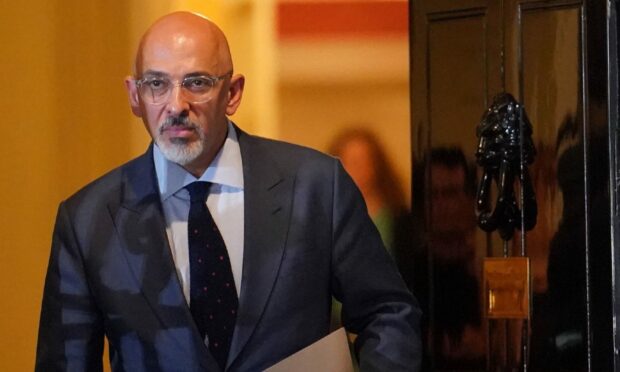North Sea industry leaders are seeking an urgent meeting with the new Chancellor, Nadhim Zahawi, on the windfall tax.
Trade body Offshore Energies UK (OEUK) has written to the newly-installed Treasury boss, who took over from Rishi Sunak on Tuesday night.
The group has several key asks on modifying the Energy Profits Levy (EPL), which is due to go through parliament on Monday.
It’s understood the body is asking for the North Sea to be the first industry Zahawi deals with through his new Treasury portfolio.
OEUK sustainability director Mike Tholen said: “OEUK has been pushing for changes to the EPL and we are pleased to have got three key changes in the amended legislation announced yesterday.”
Yesterday it was confirmed that the Treasury had made some key concessions over the controversial levy: inclusion of decommissioning tax rebates in the levy and electrification being included as part of investment incentives for the sector.
Key Asks
OEUK has four other asks for Nadhim Zahawi in the meeting:
1. The introduction of a small profit allowance, up to a certain threshold, allowing companies’ small profit to be exempt from the EPL. This will be particularly important for smaller companies, who have been investing for many years and accumulated significant losses and are now only making marginal profits to help minimise their going concern risk.
2. Recognition for companies who have invested through the “Covid-downturn” by allowing recent capital expenditure arising from 1 Jan 2020 to be deductible against the energy profits levy. These companies made significant investments despite historically low oil and gas prices (2020 Average – $42 Oil Price and 25p/therm Gas Price) and are now being adversely and disproportionately affected by the introduction of the EPL.
3. Recognition of the need for flexibility in using the EPL losses and the impact on investment cycles, particularly relating to decisions made in 2024/2025. There is concern that without the ability to carry back losses to the commencement of the EPL, there is a risk that losses will become stranded, and be a disincentive to invest in the latter half of the EPL period.
4. Support decarbonisation of supply by ensuring that decarbonisation projects, such as the electrification of production facilities sanctioned during the EPL window, should benefit from the EPL capital allowance even on expenditure which extends beyond that date. This measure would only be applied to capital expended inside the ring fence. To make this expenditure allowable, it is noted that there must be an extension of the EPL carry back which OEUK proposes is extended to 26th May 2022.
It comes after industry had a heated meeting with Rishi Sunak, Nadhim Zahawi’s predecessor, just last month in Aberdeen to go over the controversial energy profits levy.
Mr Zahawi took over as Chancellor this week after Mr Sunak resigned following controversy around former deputy chief whip Chris Pincher.
